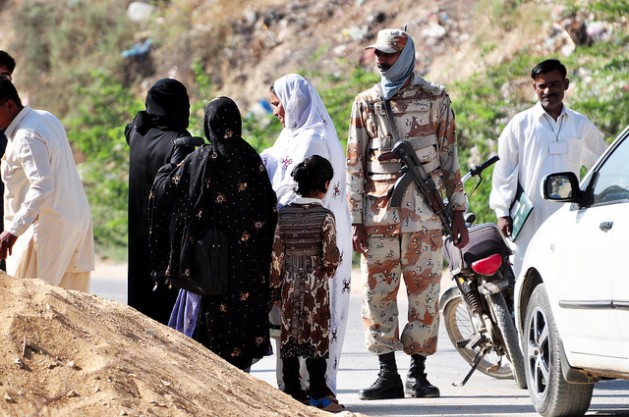
Young people were trained from the age of seven in the art of warfare in Sparta and Spartan society expected their soldiers to emerge as victors from war or arrive as dead bodies hung over shields; their slogan being glory or death. In the battle of Thermopylae (480BC), 300 Spartans died in the battlefield fighting against the Persians and all of them were buried in a common grave, the epithet saying, `Go tell the Spartans, stranger passing by, that here, obedient to their laws, we lie` In ancient Athens, it was incumbent upon every citizen to serve in the army so the philosopher Socrates (399BC) fought in a battle as a common soldier; the famous dramatist Aeschylus was more proud of being a warrior than a writer and Thucydides, the historian, served as a general in the army. When he lost a battle, he was punished by being exiled from the city of Athens.
People were persuaded to fight either to show their loyalty to their patron, or on the pretext that the opponents were religiously misguided and had to be corrected or killed. Wars were also fought with a nationalist sentiment to glorify the nation.
Nearly every society glorified the role of a holy warrior and the concept of martyrdom justified war and made it sacred. Pericles (d.429BC), the Athenian leader, delivered oration speeches attributed to soldiers killed in the Peloponnesian wars. He eulogised their services as patriots who sacrificed their lives for the honour of their land.
Culturally, war has become an ideology that we use in our daily life as a solution to all problems. It is not uncommon for politicians to raise slogans like `war against poverty`, `war against crime and `war against terrorism`.
Before the First World War, the European nations were entwined in crises which led to war and bloodletting as a solution of their political and economic problems. When the war was over, it changed the map of Europe; wiping out the Hapsburg, the Russian and the Ottoman Empires. In Germany, monarchy came to an end, while the Russian Revolution of 1917 changed the future of Russia. The common people paid a heavy price for the war.It has been the policy of resourceful nations to assert their supremacy by invading and subduing weaker nations through war. They used war as a tool to establish their domination. In the Battle of Zama (202BC), when Hannibal, the Carthaginian general met his opponent Scipio Africanus and proposed a peaceful settlement of the matter, Scipio refused to negotiate. Realising Hannibal`s weakness, he fought a battle, defeated Hannibal and settled matters on his own terms.
In traditional historiography, the rise of nations is measured by their conquest and expansion of territories. The role of warriors and generals is glorified while the intellectual contribution of scholars is ignored. Generally, it is assumed that when a nation is exhausted militarily, its power has collapsed, as in the case of the Persian and the Roman empires.
Although nations have experienced the horrors of war, yet sentiments against war remain undeveloped and immature. Nations try to invent and equip themselves with more lethal weapons to win the arms race. In fact, it earns them respect and prestige in the eye of others. The ruling classes deprive common people of their basic needs on the pretext of security. Sadly, it has become an honour to be a nuclear power, the price of which is tremendously high.
Since war is portrayed as laudable and sacred in traditional history, peopledo not fully comprehend the horrific results of war but instead, romanticise it and accept it as a culture or tradition which is a part and parcel of their life.
People must realise that war is not the solution to problems. There are alternatives to change the psyche of a nationand to end conflicts among nations through negotiation and dialogue.
History should be rewritten to condemn war and bring to justice those responsible for bloodshed during war.
Nations who were aggressors and invaders should be compelled to admit to andaccept the damage and suffering that they caused just like Germany did in regard to the Second World War. The same policy should be adopted by colonial countries as well as the US for its intervention in Asian, Af`rican and Latin American countries.
By M ubarak Ali: http://epaper.dawn.com/DetailNews.php?StoryText=26_01_2014_424_003
Jihad: http://quran-pedia.blogspot.com/2011/07/jihad.html
آپ اور پاکستان : http://pakistan-posts.blogspot.com/2013/11/pakistan-basic-issues-need-immediate.html
~~~~~~~~~~~~~~~~~~~~~~




